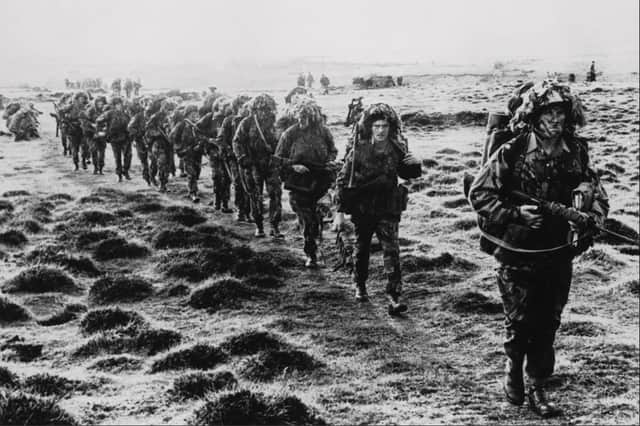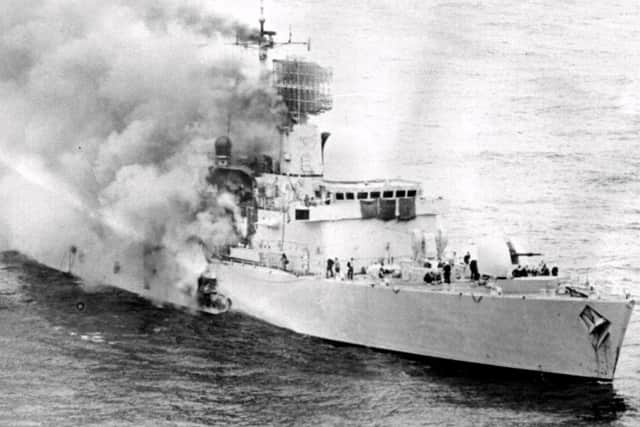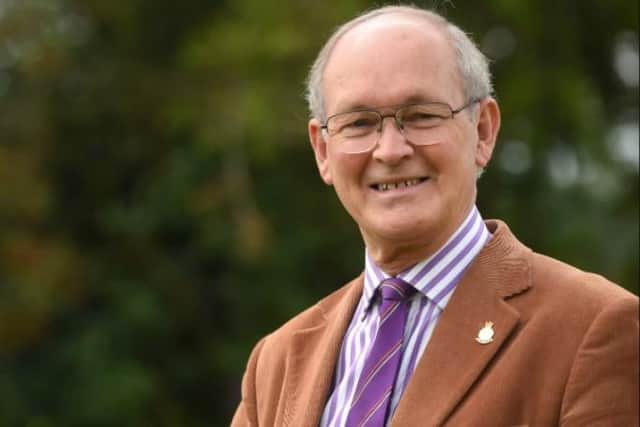‘We don’t celebrate the start of war, just the end’ say Preston veterans on Falklands 40th anniversary


Prime Minister Margaret Thatcher despatched a Task Force to the South Atlantic to recapture the British dependent territory, a Herculean job the Army, Navy and Air Force completed in just 74 days.
A total of 255 British troops were killed in the conflict and 40 years on the comrades who survived are planning to commemorate the men who never came home.
Advertisement
Hide AdAdvertisement
Hide AdBut in Lancashire, while hundreds of armed services veterans will privately remember the fallen today, there will be no official memorial service until June.


"We don't celebrate the start of a war, we celebrate the end," said Colonel David Waters who is president of the Preston and District Veterans Council.
The city's ex-service personnel will gather on June 14 at the War Memorial to pay homage to the bravery of the troops who made that 8,000-mile trip to take back a Crown colony and evict the invaders.
"The Falklands put the pride back into our military forces and politicians woke up to their duty to defend the realm," said Col Waters.
Advertisement
Hide AdAdvertisement
Hide Ad"1981 was the year we had talked about not carrying with Remembrance Sunday because of dwindling turnouts. But November 1982 was packed to the rafters, knee-deep in people.


"The public woke up to the necessity of defence and the need to remember.
"Margaret Thatcher, love her or hate her, was single-minded and determined and didn't flinch from the aim - to retake the Falklands."
Preston's veterans are planning a "simple" remembrance service on June 14, the 40th anniversary of the day the guns fell silent.
Advertisement
Hide AdAdvertisement
Hide AdThe war began on April 2, 1982 when Argentina invaded and occupied the Falklands. A day later it invaded nearby South Georgia, insisting it was reclaiming the islands which Britain had claimed as a Crown colony in 1841.
On April 5 a huge Task Force of ships set sail from Britain. The Argentinian Air Force and Navy were over-powered before troops made an amphibious landing to retake the islands.
Back home Britain was glued to television pictures of the conflict with nightly bulletins on the progress of the operation from Government ministers and officials.
Mount Tumbledown, San Carlos Water, Bluff Cove, Goose Green, Fitzroy, Mount Kent and Port Stanley became familiar names to the millions watching the campaign unfold.
Advertisement
Hide AdAdvertisement
Hide AdGeneral Galtieri, Exocet missiles, the sinking of both the Belgrano and HMS Sheffield were also top of the news agenda.
The total casualty list for the British forces was 255 killed, 775 wounded and 115 captured. At sea the Task Force lost two destroyers, two frigates, one landing ship, one landing craft and a container ship. 24 helicopters and 10 fighter aircraft were also lost.
But the Argentinian losses were much greater with 649 killed, 1,657 wounded and 11,313 captured.
It was a war that many thought Britain had no hope of winning due to the distances involved and the logistics of getting men, ships and aircraft there in sufficient numbers to overpower the invaders.
But, as one Lancashire veteran put it: "It was a job we had to do - and it surprised the world that we did it."